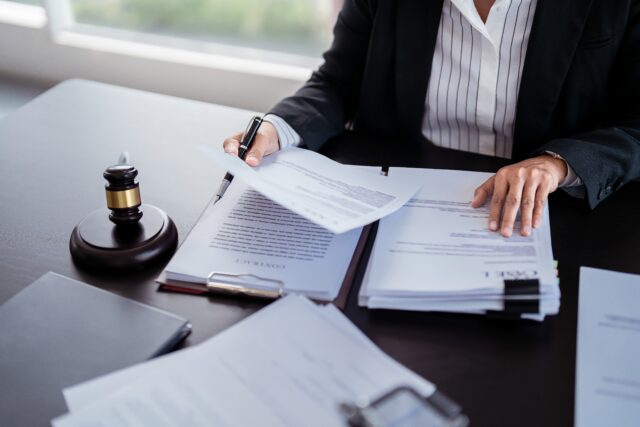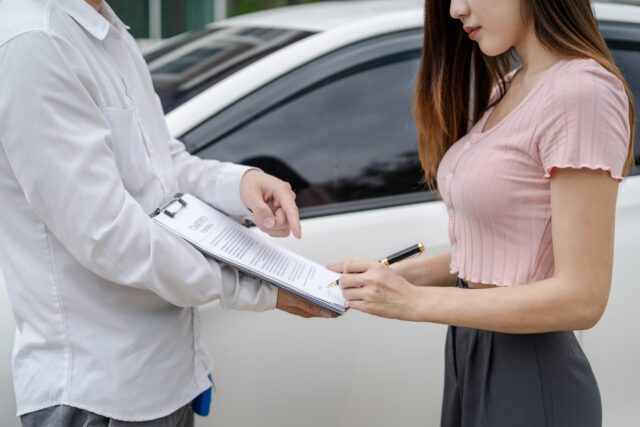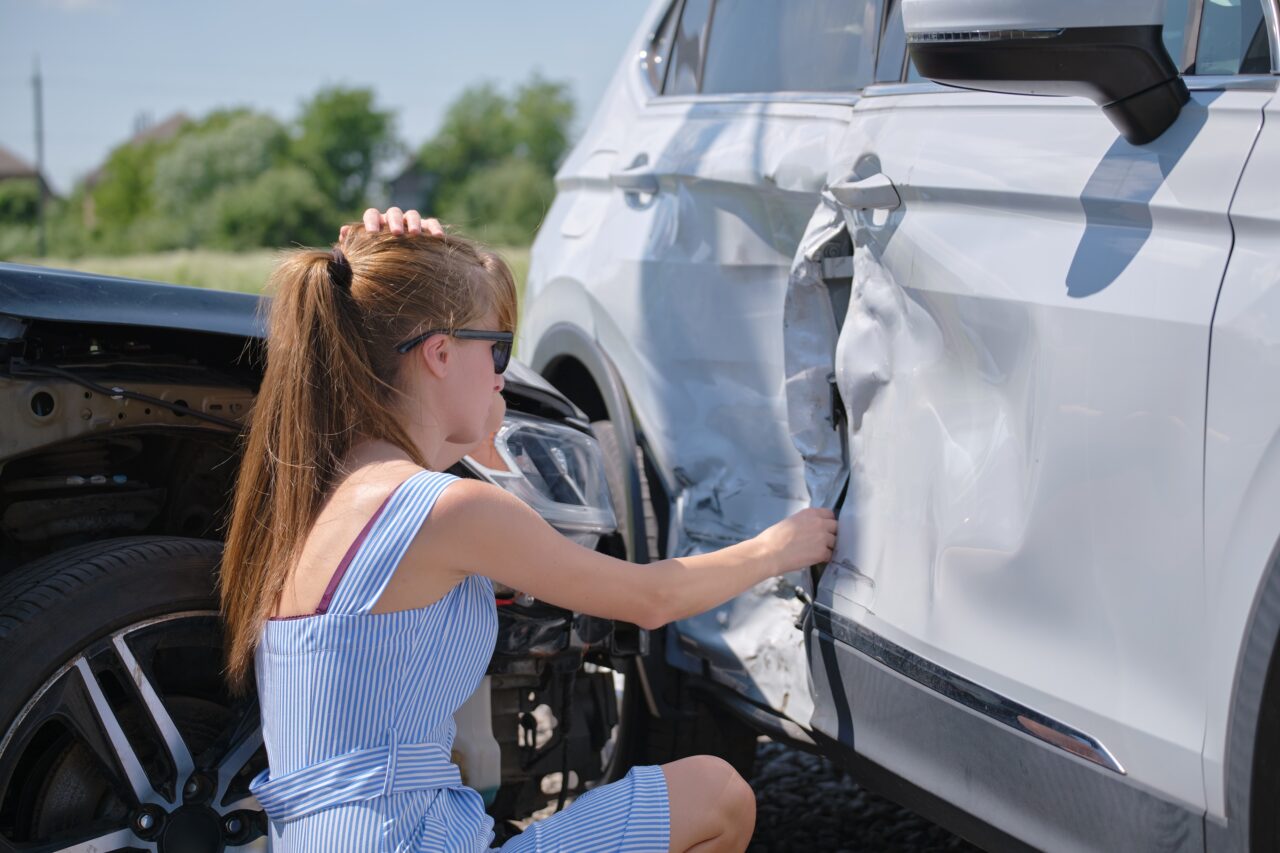Knowing what to do after a car accident is critical for personal recovery, maintaining mental health, meeting legal deadlines, and obtaining financial compensation. Not knowing what to do can add surmounting stress and anxiety when trying to navigate the process alone.
If you’ve suffered an injury in a car accident, seek a free consultation with a car accident lawyer in Arkansas immediately to discuss your legal options. You may be entitled to compensation.
Arkansas Car Accident Guide
- What to Do and Not to Do After A Car Accident
- How Will a Car Accident Attorney Help Me Know What to Do After a Car Accident?
- Contact an Experienced Car Accident Attorney
What to Do and Not to Do After A Car Accident
Once the shock and adrenaline subside, there are several things you should do and a couple of things you should not do after a car accident. Implement this plan of action after your accident for optimal results:
Get a Comprehensive Medical Evaluation
Request a complete medical evaluation after your car accident so a doctor can properly assess and diagnose your injuries. Your medical evaluation is the critical first step to ensuring health, recovery, and the need for a legal claim for compensation if injuries develop.
Things a Doctor Will Check After a Car Accident
Being medically evaluated can lead to discoveries of injuries you didn’t notice or realize the severity of because you’re still anxious from the adrenaline of the accident. Having a medical professional clarify your health is vital. Things a doctor will check after a car accident are:
- Physical Exam: Looking for visible injuries such as bruises, cuts, lacerations, or deformities.
- Head and Neck: Checking signs of head trauma, cervical spine injuries, and whiplash.
- Back and Spinal: Assessing spine for tenderness, signs of nerve damage, and spinal cord injuries.
- Chest and Ribs: Checking for signs of rib fractures, breaks, or internal chest injuries.
- Musculoskeletal: Looking for signs of strains, sprains, fractures, breaks, and other injuries to your joints, muscles, and bones.
- Abdominal: Checking for tenderness or severe pain, indicating internal bleeding or organ damage.
- Neurological: Assessing signs of concussion or traumatic brain injuries (TBIs) commonly caused by motor vehicle accidents.
If relevant to your injuries, your medical examination will include necessary diagnostic tests, such as X-rays, MRIs, and CAT scans. Your doctor will also evaluate you for confusion, shock, anxiety, and other emotional responses common with car accidents.
If you experience a delay in symptoms after your accident, schedule a follow-up with your physician to be reevaluated immediately. It’s common for some car accident injury symptoms to develop days after the incident. Don’t ignore them. They may be symptoms of a severe injury like a concussion.
Follow Your Doctor’s Discharge Instructions
Adhere strictly to your physician’s discharge instructions, including any limitations or restrictions. Health and recovery are your top priorities. This includes completing physical therapy exercises to strengthen and repair soft tissue injuries.
Keep a Record of Your Recovery After a Car Accident
Begin by recording your memory of the accident in a post-accident journal. Details fade with time. Journaling them when they’re fresh will help ensure proper documentation. Some additional things you should include detailed entries about are:
- Pain levels (what aggravates or makes pain worsen)
- Chronic pain
- Sleep disturbances
- Mental anguish (fear, depression, anxiety, distress, grief, hopelessness)
- Loss of enjoyment of life and activities
- Limited or loss of ability to do things you could do before the accident
- Loss of consortium (especially, surviving spouse in wrongful death claim)
Your post-accident journal is the perfect place to document your out-of-pocket expenses so your lawyer can seek total compensation. You are not responsible for incurring financial expenses or debts relating to a car accident, especially if it wasn’t your fault.
Do Not Post to Social Media After a Car Accident
As tempting as it may be to run to your social media feeds and post about your traumatic accident —don’t. You should avoid posting altogether because anything you post may be twisted and used against you, which can significantly impact your claim. It may even cause it to be denied.
For example, if you are checking into the gym every day, they may interpret those virtual check-ins to mean that you’re not as injured as you say you are. However, the check-ins don’t tell the story of you only being there to sit in the hot tub or sauna. It’s about what the evidence suggests, and it’s easily misinterpreted.
Speak with a car accident attorney immediately if you’ve posted about your accident on social media to discuss what you should do next.
Do Not Give a Recorded Statement to Insurance Company
Shortly after the accident, you can expect a phone call from the at-fault driver’s insurance company. They intend to get you to admit liability so they can deny your claim.
They’ll usually ask for a recorded statement and proceed to ask you a series of questions designed to deny claims. The company will want you to provide an account of the accident and how you feel afterward.
The issue is that if they call immediately and you tell them you feel fine, it will be more challenging to prove an injury like whiplash when painful symptoms may show up several days later and completely take you down. Speculating on, “Why did you change your story?” —Becomes their story and defense for you possibly exaggerating or faking an injury.
Do not give a recorded statement. The insurance representative or adjuster may sound friendly, but they are not looking out for your best financial interests. They are doing anything they can to protect their own.
Hire a Car Accident Attorney Immediately

Once an attorney is involved in your car accident claim, the insurance company can no longer seek communications with you. Instead, all communication is directed to your lawyer.
The sooner you hire one, the sooner the pressure they put on you to record statements that may compromise your claim or to accept a lowball offer to settle too soon goes away.
Car accident lawyers work on a contingency fee basis, so there are no upfront costs. They also only get paid if they successfully secure compensation for you. Their services are available to all people, regardless of financial circumstances. Contingency arrangements ensure car accident victims do not have to battle the system alone.
How Will a Car Accident Attorney Help Me Know What to Do After a Car Accident?
A car accident lawyer will do more than help you know what to do after a car accident; they assume the legal representative role and handle all of the aftermath for you. Your main priority is recovery and rest. You do not have to try to figure out all of this alone while also managing pain and psychological trauma.
There is a lot involved during the car accident claim process. Let an experienced car accident attorney handle it for you. Here are the benefits of hiring an attorney.
File and Organize Paperwork
Your attorney will guarantee that all legal deadlines are met when filing paperwork. The car accident claims process also involves a significant paper trail, which they efficiently organize and maintain. Some examples of paperwork associated with a car accident claim are:
- Any notes that were taken at the accident scene
- Police report
- Witness statements
- Auto insurance policy documents and cards
- Medical records
- Records of expenses (vehicle repair invoices, medical bills, lost income)
- Photographs of the accident scene and injuries
- Pay stubs or records
- Other statements and documents relating to the claim
Make copies of receipts and invoices for any out-of-pocket expenses to give your lawyer for their records— for example, prescription costs, copays, gas to and from medical appointments, and lodging expenses associated with seeing medical specialists and receiving rehabilitation services. Remember, you can also log these in your post-car accident journal.
Investigate Your Car Accident Claim
An extensive investigation into the circumstances and details of your car accident is necessary to establish negligence and secure adequate financial compensation. There are four critical steps to their investigation.
- Gathering Evidence: Collect the police report, photos of your injuries, photos of the scene, security footage of the accident, dashcam footage, and any other physical evidence relating to your car accident.
- Interview Witnesses: Interview key eyewitnesses that can help establish liability and prove negligence.
- Reconstruct Accident Scene: Your attorney will work with crash reconstructionist to recreate your accident scene with 3D laser scanning, 3D animations, and scene diagramming.
- Determine Liable Parties: Determine all liable parties, such as drivers, businesses overserving alcohol, manufacturers or distributors of defective vehicle parts that contributed to the accident, and government agencies failing to maintain proper signage or drivable roads.
Analyzing all of the data is an important part of the investigation. Because each accident differs in severity and circumstances, there isn’t a determined timeline for exactly how long the car accident claims process takes. Your lawyer can give you a reasonable estimate after exploring the specifics of your case.
Document Your Accident-Related Damages
Documenting all your accident-related damages involves exploring various expenses and losses. The process can take time and is usually complete once you are done being medically treated. Some claims may seek damages for future medical expenses.
Types of Damages You Can Seek Compensation for After a Car Accident

You can seek compensation for several damages, such as medical expenses, lost income, property, and non-economic damages.
- Medical Expenses: All medical costs associated with the accident, including emergency services, doctor, rehabilitation, prescription, mental health services, medical devices, and home modifications.
- Professional Damages: All work-related losses, including lost income, salary, overtime, commissions, bonuses— health, retirement, and pension benefits, and passed-over promotions due to injury.
- Property Damages: All financial damages to the vehicle and any personal property in the car or on your person in the accident, such as clothing, glasses, smartphones, laptops, and car seats.
- Household Services: All costs associated with hiring outside services to maintain things your injury disabled you from doing, like household chores, cooking, and childcare.
- Non-Economic Damages: Intangible losses, like physical pain and suffering, mental anguish, decreased quality of life, loss of activities, depression, anxiety, and scarring or disfigurement.
- Punitive Damages: Punitive damages are only awarded in car accident cases when the at-fault party’s actions were particularly egregious. The insurance company does not pay these damages. Only a jury can award punitive damages if your case goes to trial, which is uncommon with car accidents.
Family members who have suffered the loss of a loved one due to a negligent driver may be eligible to receive compensation for wrongful death damages, including medical bills before death, pain and suffering, loss of companionship, loss of enjoyment in life, and lost income. Ask your attorney about the potential of calculating future earnings in your wrongful death claim.
Prove Negligence
Proving negligence can be challenging when the insurance company attempts to deny it. Fortunately, experienced car accident lawyers confidently navigate proving the four elements of negligence to establish liability in a car accident claim:
- Establish the at-fault driver owed you a duty of care
- Prove how the at-fault driver violated their duty of care
- Prove that their negligent act caused the accident
- Establish the damages you have suffered because of the at-fault drivers’ negligence
After your lawyer proves negligence, they can begin negotiating with liable parties. Sometimes, there is more than one liable party, which can complicate this process.
Negotiate With Liable Parties
Negotiations with insurance companies often involve multiple rounds. You almost always reject the first offer, as they commonly send lowball offers first to see if they can settle for much less than they want to afford.
Car accident lawyers are skilled negotiators who are excellent at seeking maximum compensation. They will inform and advise you of any offers they propose. The decision when to accept an offer is yours.
Resolve Your Case
Car accident insurance claims can be resolved through a settlement or trial. Most are determined by the former.
- Settlement: Car accident claims are typically settled outside court with a lump sum or one-time payment. Sometimes, car accident victims opt for structured settlements, receiving allotted payments over designated pay periods.
- Go to Trial: If your case goes to trial, your lawyer will locate other evidence during the discovery process, represent you in court, call expert witnesses, and cross-examine witnesses for the prosecution. Remember, they only get paid if you do.
Contact an Experienced Car Accident Attorney
The sooner you retain a car accident lawyer, the better. Schedule a free consultation to discuss the circumstances of your case. You may be entitled to significant compensation.

